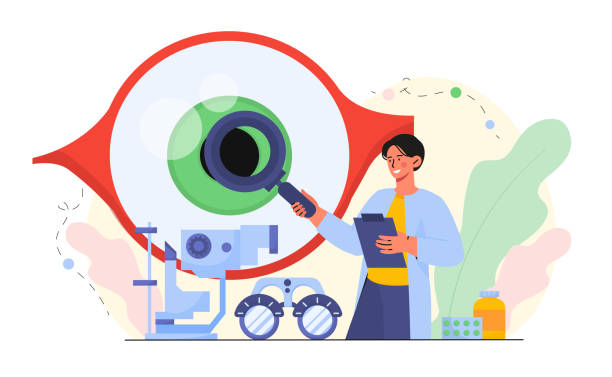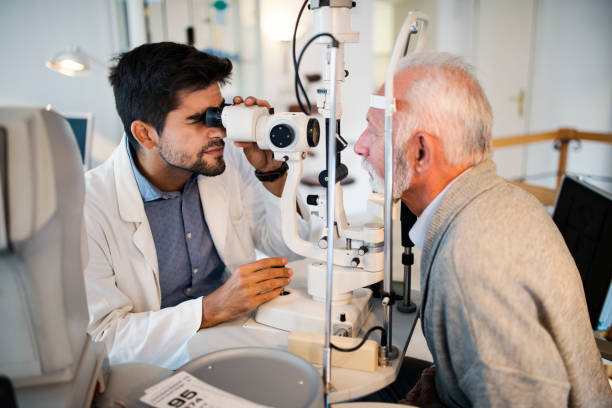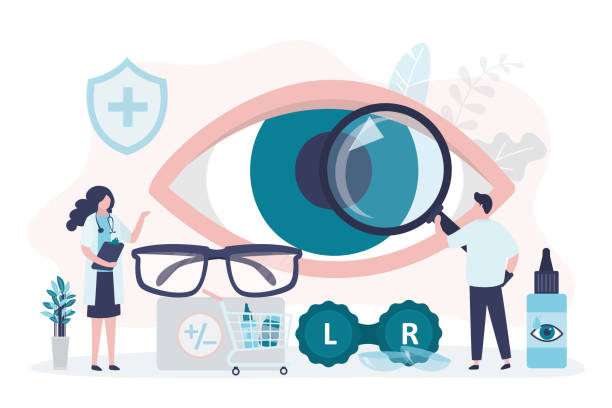When it comes to eye health, many people wonder if it’s possible to improve their eyesight naturally. After all, there are countless online claims, products, and tips promising to enhance vision without the need for glasses or surgery. From eye exercises and vitamin supplements to special diets and lifestyle changes, the internet is filled with advice that may or may not be backed by science.
But what is true, and what is just a myth? Can simple habits really sharpen your vision, or are corrective lenses and medical treatments the only reliable solutions? In this article, we’ll explore the facts and myths behind the idea of improving your eyesight naturally, helping you separate truth from fiction.
Common Myths About Improving Eyesight
- You Can Fix Your Eyesight with Eye Exercises One of the most common myths about eyesight is that you can improve your vision through eye exercises. While it’s true that focusing on near and far objects can help reduce eye strain, it’s important to note that these exercises do not improve refractive errors like nearsightedness, farsightedness, or astigmatism. These conditions are typically caused by the shape of the eye or the lens, which cannot be changed through exercises alone.
- Carrots Can Improve Your Vision Many people believe that eating carrots will make you see better, thanks to the vitamin A they contain. While vitamin A is important for overall eye health and can help prevent conditions like night blindness, eating carrots alone won’t correct vision problems like myopia or hyperopia. A healthy diet is important for maintaining good eye health, but it’s not a miracle cure for poor eyesight.
- Sitting Too Close to the TV Will Ruin Your Eyesight Another common myth is that sitting too close to the TV or computer screen will damage your eyes permanently. While it’s not ideal to sit too close, there’s no evidence that doing so will cause permanent damage. However, sitting too close can cause eye strain and discomfort, leading to symptoms like headaches and blurry vision. The key is to maintain a proper distance and take regular breaks.
- Wearing Glasses Will Make Your Eyes Dependent on Them Many people worry that wearing glasses will weaken their eyes and make them “dependent” on corrective lenses. This is a myth. Glasses help correct vision, but they do not cause any long-term harm to the eyes. In fact, they can help reduce eye strain, improve clarity, and make everyday activities easier. Your eyes won’t become “lazy” by wearing glasses; rather, they’ll be supported in their natural function.
- Eye Drops Can Improve Vision Permanently Some eye drops are marketed as solutions to improve eyesight, claiming to correct refractive errors or reverse age-related vision decline. However, there’s no scientific evidence to support these claims. While certain eye drops can help alleviate dryness or irritation, they cannot permanently improve vision. Always consult with an eye doctor before trying any over-the-counter drops for vision improvement.
The Facts About Eye Health and Vision Improvement

Now that we’ve debunked some common myths, let’s take a closer look at what you can do to support and maintain your eye health. While there may not be a magic solution to drastically improve vision overnight, there are plenty of proven strategies to keep your eyes in the best shape possible.
From maintaining a nutrient-rich diet and protecting your eyes from harmful UV rays to adopting good screen habits and scheduling regular eye exams, small lifestyle changes can make a big difference. Understanding what truly benefits your eyesight will help you take proactive steps toward long-term visual wellness.
- Proper Nutrition Can Support Eye Health While certain foods like carrots won’t magically improve your vision, eating a balanced diet rich in nutrients is essential for overall eye health. Key nutrients include:
- Vitamin A: Found in carrots, sweet potatoes, and leafy greens, vitamin A is important for maintaining the health of the retina and preventing night blindness.
- Vitamin C: Found in citrus fruits, peppers, and broccoli, vitamin C supports the health of blood vessels in the eyes and can help reduce the risk of cataracts.
- Omega-3 Fatty Acids: Found in fish like salmon and flaxseeds, omega-3s are beneficial for eye health, particularly for preventing dry eye syndrome.
- Lutein and Zeaxanthin: Found in leafy greens, eggs, and corn, these antioxidants help protect the eyes from harmful light and may lower the risk of age-related macular degeneration (AMD).
- Regular Eye Exams Are Crucial Regular eye exams with an optometrist or ophthalmologist are essential for maintaining good eye health. These exams help detect early signs of eye conditions like glaucoma, macular degeneration, or diabetic retinopathy. Early detection allows for prompt treatment, which can prevent further vision loss.
- Good Habits for Eye Care Practicing good eye care habits can go a long way in preventing unnecessary strain and protecting your vision. Here are a few tips to help you care for your eyes:
- Follow the 20-20-20 Rule: If you spend long hours in front of a screen, take a 20-second break every 20 minutes and focus on something 20 feet away to reduce eye strain.
- Use Proper Lighting: Ensure that your work area is well-lit to avoid straining your eyes. Use softer lighting to prevent glare.
- Wear Sunglasses: Protect your eyes from harmful UV rays by wearing sunglasses when outdoors. UV exposure can increase the risk of cataracts and macular degeneration.
- Stay Hydrated: Drinking enough water helps prevent dry eyes and supports overall eye health.
- Can You Correct Your Vision Naturally? While some minor vision issues, like mild farsightedness or presbyopia (age-related difficulty focusing on close objects), can sometimes be improved with changes in habits, there is no natural remedy that can replace the need for glasses or contact lenses when it comes to more serious refractive errors. Laser surgery, such as LASIK, is a medical solution for some people, but it’s important to consult with an eye doctor to discuss options.
When to Seek Professional Help

If you’re experiencing sudden changes in your vision, it’s essential to seek professional help. Symptoms such as blurry vision, double vision, eye pain, or flashes of light can be signs of underlying conditions that require medical attention.
Regular eye exams and open communication with your eye care professional will help ensure that any vision issues are detected and addressed early on. While there are many things you can do to maintain eye health, sometimes corrective measures such as glasses, contacts, or surgery are necessary for optimal vision.
Conclusion
The idea of improving your eyesight naturally is appealing, but it’s important to separate fact from fiction. Many people hope that eye exercises, special diets, or herbal supplements can significantly enhance their vision, but the reality is more complex. While lifestyle choices like eating a balanced diet rich in vitamins A, C, and E, getting regular eye exams, and protecting your eyes from strain and UV rays can certainly support long-term eye health, they won’t necessarily correct refractive errors like nearsightedness, farsightedness, or astigmatism. These conditions typically require glasses, contact lenses, or medical interventions such as laser surgery for effective correction.
If you’re looking to improve your vision, it’s always best to consult an eye care professional who can provide personalized advice and recommend the right treatment options based on your specific needs. By debunking myths and focusing on proven facts, you can take proactive steps to protect your eyes, reduce your risk of vision problems, and maintain clear, healthy sight for years to come.

